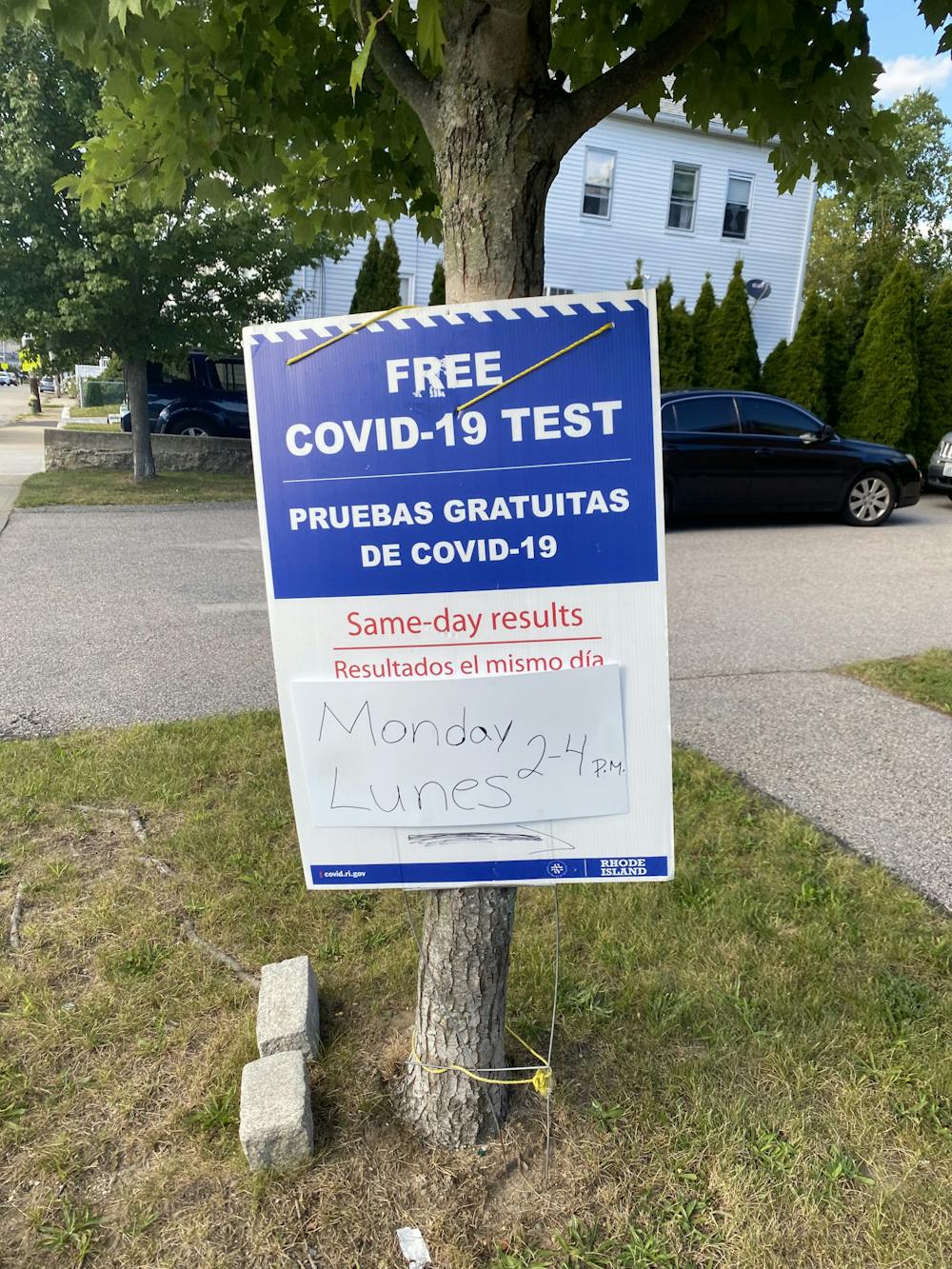The City of Providence and Lotus Noire Health held a Health Equity vaccine clinic at Scalabrini Dukcevich Center Monday. Master’s students from the School of Public Health volunteered by checking in patients, offering translation services and answering questions community members had about the vaccination process.
The clinic is located in the largely residential Silver Lake neighborhood of Providence. The brick building serves the community in many different capacities including educational outreach, COVID-testing, legal services and women’s health services. Inside, patients line up to check in in the waiting area and receive COVID tests and vaccines in a separate room. According to volunteer Leonardo Arriola GS, a student in the MPH program, the clinic is able to vaccinate about 15 to 20 people in its three hours of operation. The clinic is open only on some Monday evenings.
The community served is part of Providence County, which has the lowest vaccination rates in the state, according to the Rhode Island COVID-19 Vaccine Tracker. Currently, 66.34% of the population in Providence County are at least partially vaccinated, with 59.91% fully vaccinated. In a county with over 600,000 people, this means that over 200,000 people in the area are unprotected against COVID. Blaise Rein, the COVID response constituent representative for the Mayor’s Center for City Services, shared that the clinic has “had quite a number of students from Brown volunteer with us throughout the pandemic,” including some from the MPH program.
One of these students, Sara Riosmendez GS, was working her third shift at the clinic Monday. She works as a translator, checking community members in and filling out their vaccine cards. “These are focused clinics,” she said. “I think that pretty much everybody who has wanted to get vaccinated has been vaccinated, so (the clinic is) focused towards getting over misinformation and doing it through (vaccination centers) that … have a relationship of trust with the community.”
She noted that while the clinics tend to be busy each day, there are still hurdles to overcome in getting the community vaccinated. “The highest unvaccinated rates are usually in Latino and Black communities. And it is very understandable with the history of exploitation of the medical institutions in these communities. I think it’s just getting over that misinformation and that fear that is founded in a lot of trauma,” Riosmendez said.
Another Brown MPH student, Marcell Coleman GS, feels that the community clinic is providing “where our government and assistance programs are not … focusing on priority yet marginalized communities.” Coleman said that the volunteers have addressed misinformation in candid conversations with patients. “We literally have conversations with people in the community that come in all the time that share that their sister or their brother won’t get vaccinated, and they will go back and let their experience inspire others.”
Arriola has been volunteering at the clinic for three weeks. As a Spanish and Portuguese speaker, Arriola noticed that “there is a huge Latino population that is coming to these clinics.”
“I come to serve my community,” Arriola said. He encourages other multilingual students to get involved to reach more communities by breaking the language barrier in the medical field. Temperance Taylor, a nurse practitioner and community member, manages the vaccination and testing program for the clinic. Her goal for the clinic, she says, is to “go into neighborhoods … and provide what they say they need, not what I think they need.”
One emphasis of the clinic is to create a comfortable environment, Taylor said. “We all love what we do,” she said. “Everybody is learning, or teaching or growing in some way…The people who are being vaccinated now are only being vaccinated now because they have to or because they are scared. We have to be sensitive to that and we have to love these people…They are being brave by coming here.”





